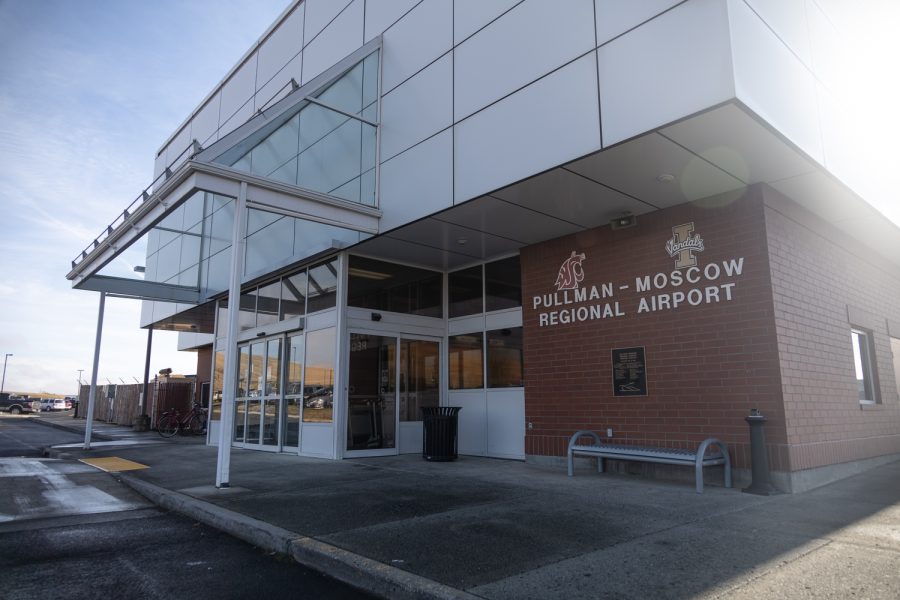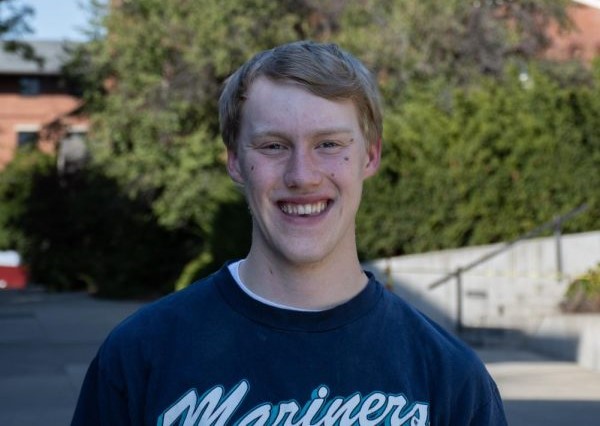WSU contributes $600,000 towards new Pullman-Moscow Airport terminal
Donation is continuation of strong relationship between university, airport
COLE QUINN | DAILY EVERGREEN FILE
Community partners are donating a collective $10 million to build a new terminal at Pullman-Moscow Regional Airport.
January 13, 2022
WSU is donating $600,000 toward the construction of a new terminal at Pullman-Moscow Regional Airport.
University of Idaho is contributing $400,000 toward the new terminal as part of a collection of community donations totaling $10 million, said Phil Weiler, WSU vice president of marketing and communications.
The airport has experienced rapid growth in recent years, expanding from more than 30,000 travelers in 2009 to more than 70,000 all-time travelers in 2019, a 133% increase. The airport is currently projected to have 137,000 total travelers by 2029 and 176,000 travelers by 2040, according to a WSU Insider article.
The airport is the result of a unique cross-border partnership between two different universities, towns and counties in two different states, Weiler said.
The airport is co-owned by the cities of Pullman and Moscow and managed by a board consisting of representatives from both WSU and University of Idaho, the cities of Pullman and Moscow, and both counties, Weiler said.
WSU contributed to the airport’s runway renovation, Weiler said.
The project began in 2005, broke ground in 2015, and was completed in 2021, according to the engineering firm Mead and Hunt.
The runway realignment addressed three major concerns. First, the engineers designed a larger runway to accommodate larger aircraft. Second, the engineers reoriented the runway to avoid problems caused by planes attempting to take off or land over Moscow Mountain. Third, the airport now includes equipment that helps pilots land their planes in inclement weather, Weiler said.
“[It was] quite frequent that planes would fly from Seattle to Pullman, and get here, it was foggy, they’d have to circle around for a while to wait for the fog to clear, and if it didn’t clear, they would have to fly back to Seattle,” Weiler said. “Real bummer if you’re on that flight.”
The next project the airport is tackling is the construction of a new terminal to replace the old one, Weiler said.
The new terminal is projected to cost $61 million, according to a WSU Insider article.
The Federal Aviation Administration is contributing $51 million toward the project while local donors, including WSU, are contributing a total of $10 million, Weiler said.
The current terminal is a single room that contains the Alaska Airlines ticketing desks, rental car desks and security. It does not contain any concessions, Weiler said.
The new terminal is expected to include baggage claim inside the building instead of in a separate building where it is now. The new terminal is also expected to have a jetway, so travelers do not have to board and deplane via a ladder onto the tarmac.
The WSU Athletics Department is a frequent airport user, said Chris Park, deputy athletic director for external relations.
“We love the convenience of the Pullman airport for our student-athletes to get them to competitions, and then get them home quickly to return back to class,” Park said.
Park said the convenience of a local airport helps coaches make efficient recruiting trips. Athletics staff members also attend meetings and events throughout the Pac-12 Conference, state and nation, and the airport helps prospective student-athletes visit Pullman.
WSU Athletics, particularly the football program, benefits from the ability to land larger charter aircraft, Park said.
WSU Athletics is excited by the university’s support of the airport because it is not only beneficial for the department, but for the university and the community as well, Park said.
The $600,000 WSU is contributing to the new terminal came from selling a university-owned condominium in Seattle, which WSU President Kirk Schulz sold because he felt he was not using it enough, Weiler said.
A vibrant local airport also makes WSU an attractive research location, he said.
“[A successful airport is] important from a perspective of bringing in students from all over the state and all over the region,” Weiler said.










